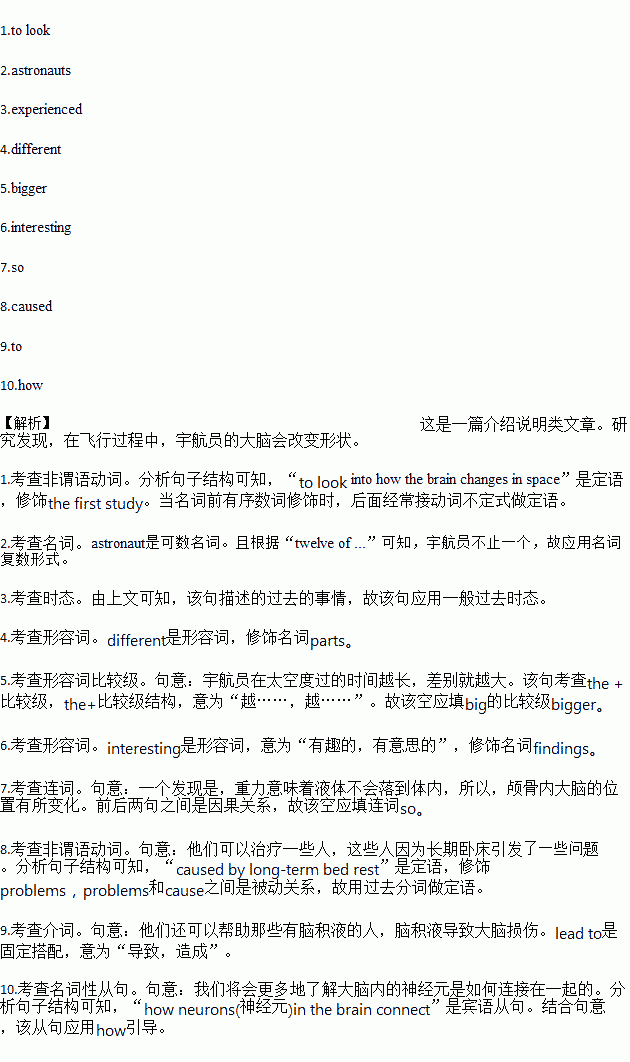题目内容
Researchers from the University of Michigan have found that astronauts’ brains change shape during spaceflight. It is the first study1.(look) into how the brain changes in space. Researchers looked at high-tech MRI(磁共振成像)pictures of the brains of 26 astronauts who spent time in space. Twelve of the2.(astronaut) spent two weeks on the Space Shuttle, and 14 spent six months on the International Space Station. All of them3.(experience) increases and decreases in the size of 4.(differ) parts of the brain. The longer an astronaut spent in space ,the 5.(big) the size differences were.
The research produced some6.(interest) findings. One was that on gravity means fluids do not drop in the body, 7.there is a shift in the brain’s position inside the skull. The brain becomes either smaller or bigger. The findings could help doctors to treat problems that affect the brain’s function. They could treat people with problems 8.(cause)by long-term bed rest. They could also help those who have a build-up of fluid in the brain, which can lead9.brain damage. We will understand more about 10.neurons(神经元)in the brain connect. The findings will also help future trips to Mars.
| A. | direct | B. | limit | C. | change | D. | improve |
| A. | since | B. | until | C. | if | D. | as |

